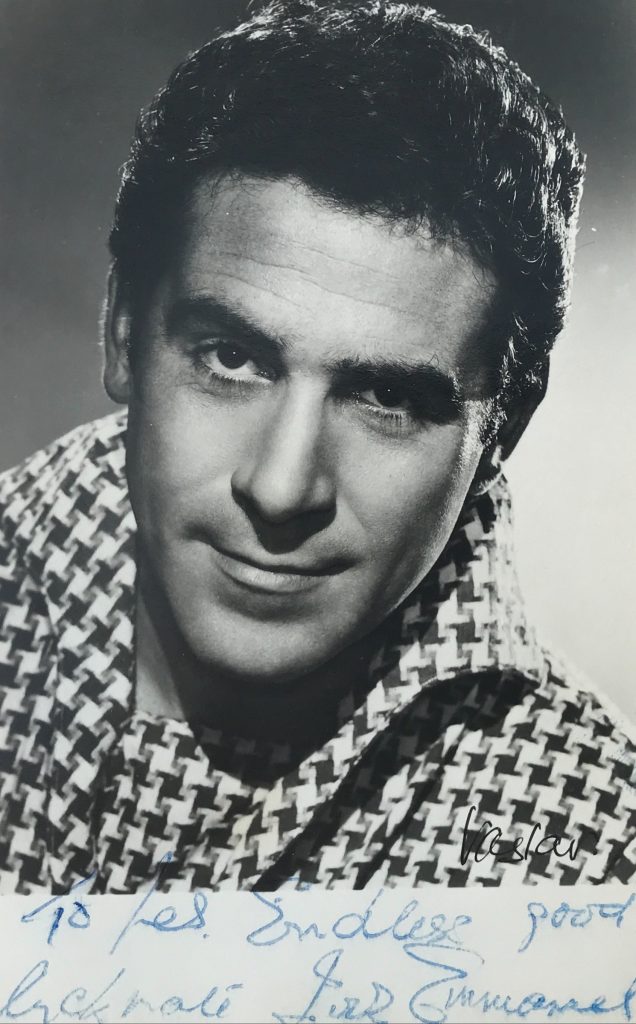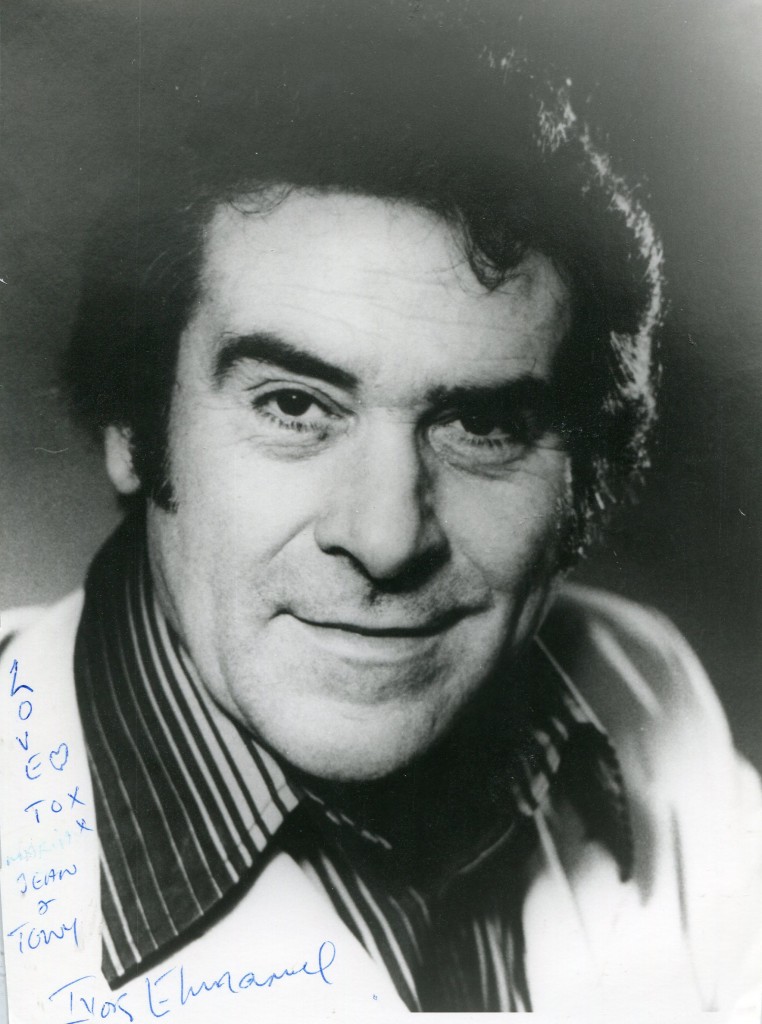

Patrick Hannan’s obituary in “The Independent” in 2007:
Even today, long after he made an early departure from showbusiness to spend the last 25 years of his life in Spain, people still nod with recognition at the name of Ivor Emmanuel, who has died aged 79. Of course, they say, he was the guy in Zulu. More specifically, he was Private Owen in that 1964 film, leading a small band of British soldiers in the defiant singing of Men of Harlech in response to the war chants of 4,000 Zulus preparing to slaughter them.
Zulu was the story of the siege, in the Anglo-Zulu war of 1879, of Rorke’s Drift, when 150 British soldiers defended a supply station against the Zulus, winning 11 Victoria crosses in the process.
Starring and produced by another Welsh actor, Stanley Baker, it was given a more intensely Welsh flavour than history justified, but in its turn that provided the occasion for Emmanuel’s unforgettable part in the swelling version, with specially written words referring to Zulu spears, of the familiar and rousing (and anti-English) Welsh song, Men of Harlech. Whatever you think of the story, it remains an unforgettable movie moment. And it was to overshadow everything else Emmanuel did in his career as a singer and actor.
His own life might have made a decent drama, or perhaps a south Wales rags to riches novel. He was born in Margam and raised in the mining village of Pontrhydyfen, near Port Talbot, an area that forms part of a golden triangle for the acting trade. Richard Burton, a couple of years older, was born there; Anthony Hopkins, 10 years younger, was from Taibach, just down the road.
In the 1940s the future for a boy from a poor working class family was clear enough: a life in the pits or the steelworks. Emmanuel’s prospects were made even more dismal by the stray German bomb that killed his father, mother, sister and grandfather when he was 14.
Emmanuel, who was then brought up by his aunt Flossie, became a miner and then a steelworker, developing his singing with the Pontrhydyfen Operatic Society in a period when even a modest mining village might have substantial cultural ambitions. From time to time he would walk off into the countryside with his wind-up gramophone to listen to recordings of Caruso.
In 1950 he got into the chorus of the D’Oyly Carte Opera Company and then – advised by Burton, legend has it – he got a part in Oklahoma at the Theatre Royal, Drury Lane. He was ideal for roles in those US musicals – strong, good-looking with dark, wavy hair and a powerful baritone voice. He was to play in many of them, including South Pacific and the King and I, but he did not get leading roles and it turned out to be his Welshness that unexpectedly brought him national recognition.
In the 1950s, Sunday television was precluded from disturbing the Sabbath’s religious character. So the ITV network was happy with Gwlad y Gan (Land of Song) from TWW, the then franchise holder for Wales and the west of England. It ran until 1964, and Emmanuel figured as an older brother figure among the children’s choirs.
It brought him much more work, but perhaps he was too Welsh for his own good. He was a natural for a New York musical of How Green Was My Valley, but it ran for only 41 performances and that was the end of his Broadway career. He made records and continued in stage musicals and on TV without becoming firmly established at the top of the bill.
It is curious that Zulu, an account of an imperial adventure, remains a staple of TV repeats in an entirely different era. But it does so and has provided Emmanuel with his piece of screen immortality.
Married three times, he is survived by his wife Malinee and their daughter, and his son and daughter from his first marriage.
· Ivor Emmanuel, singer and actor, born November 7 1927; died July 20 2007
The above obituary from “The Guardian” can also be accessed here.

